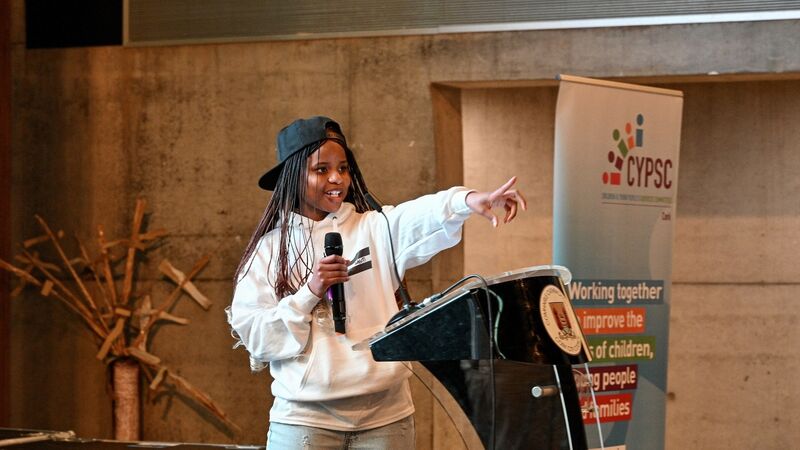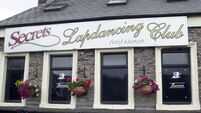With fists in the air, the youth of Cork took several turns around the room in silence, in an effort to be seen and listened to as they declared the need for change and to be anti-racist in Ireland.
With masks on their faces, each bore a word in silver marker: Freedom, solidarity, change, justice, anti-racist, George Nkencho, while one person wrote on a cardboard placard: “Racism is a Pandemic.”
Already a subscriber? Sign in
You have reached your article limit.
Subscribe to access all of the Irish Examiner.
Annual €130 €80
Best value
Monthly €12€6 / month
Introductory offers for new customers. Annual billed once for first year. Renews at €130. Monthly initial discount (first 3 months) billed monthly, then €12 a month. Ts&Cs apply.
CONNECT WITH US TODAY
Be the first to know the latest news and updates
















